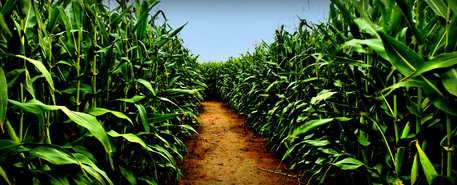Farmers may not be responsible if visitors injure themselves
By Diego Flammini
Assistant Editor, North American Content
Farms.com
Farmers in Ohio who turn their corn fields into mazes for the public to enjoy will be partially protected if visitors hurt themselves.
Supporters of the move say passing the law acknowledges that visiting a farm exposes people to unique risks.
“Is it nature,” Debbie Mihalik, whose family’s corn maze, pumpkin patch and haunted house in Madison was visited by 10,000 people last year, told the Toledo Blade.
“We maintain the paths in the cornfield, do walk-throughs every weekend. But it is a cornfield with dips and puddles when it rains. It can be hazardous.”

Farmers will only be protected from inherent risks including an animal biting or kicking a visitor. For example, if farmers allow visitors into a decaying barn and someone is injured, they could still be held responsible.
Rob Leeds’ pumpkin farm is Ostrander is a popular destination with its ziplines and slides, but he said insurers have dropped him as a client as attendance increased.
“You want to give people access to the farm, but you want to keep it safe too,” he told The Blade.
Brandon Kern, a lobbyist for the Ohio Farm Bureau is hopeful that giving farmers some liability protection will help them get insurance and keep costs down.